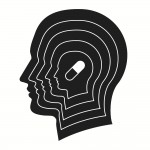
Major depression remains a serious condition that often proves refractory to pharmacological or psychotherapeutic interventions. Because depression can have many “faces”, clinicians should be aware of the great symptom variability among depressed patients and consider subforms when prescribing medication. In a sizeable amount of patients (up to 25%, Coryell et al., 1984), depression presents with [read the full story…]











